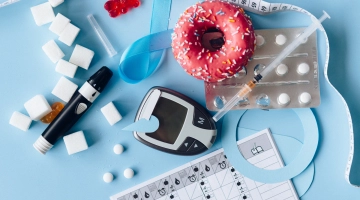Modern medicine is shifting from treating illness to preventing it. Regular checkups can catch diseases early — often before any symptoms appear — and sometimes, they truly save lives. Here are 5 essential medical tests everyone should consider, and how often to take them.
-
Complete Blood Count (CBC)
What it shows: anemia, inflammation, hidden infections, early signs of leukemia.
When to take it: once a year, or immediately if you feel persistently unwell.
Why it matters: This simple test can uncover issues like low hemoglobin, immune imbalances, or even blood cancers in their earliest stages. -
Blood Chemistry Panel (Biochemical Blood Test)
What it shows: liver and kidney function, blood sugar, cholesterol, and electrolyte balance.
When to take it: annually, especially after age 30.
Why it matters: Elevated glucose and cholesterol are early warnings of diabetes and cardiovascular risk. Liver enzymes can indicate hepatitis, fatty liver disease, or other hidden issues. -
Tumor Markers (e.g., CA-125, PSA, CA 19-9)
What it shows: early signs of cancer activity in the body.
When to take it: based on personal risk factors — family history, age, or doctor’s recommendation.
Why it matters: While not diagnostic on their own, tumor markers can signal a need for further investigation before symptoms arise. -
Vitamin D Test
What it shows: levels of vitamin D, crucial for bone health, immunity, and hormonal balance.
When to take it: once a year, especially in winter or if you're fatigued or frequently ill.
Why it matters: Vitamin D deficiency is linked to fatigue, depression, autoimmune diseases, and even cancer risk. -
Urinalysis (Urine Test)
What it shows: kidney function, urinary tract infections, hidden glucose or protein.
When to take it: annually or with any suspicious symptoms.
Why it matters: A routine urine test can reveal early-stage kidney issues, diabetes, or infections — often before they become serious.
Bottom line: Don’t wait for symptoms. Getting tested isn’t about fear — it’s about taking responsible care of your health. One lab visit a year can change everything.





